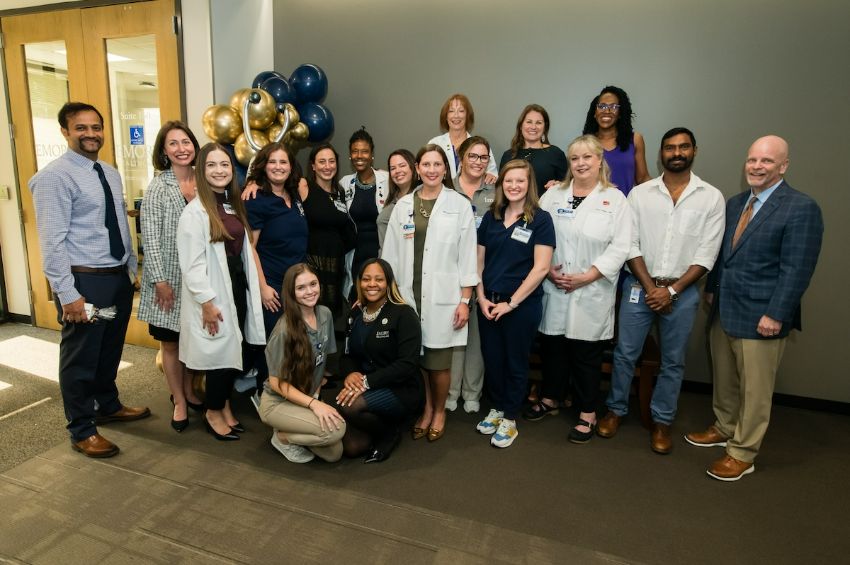Meeting the complex needs of a loved one with dementia can be physically and emotionally overwhelming. In addition to managing challenging cognitive and behavioral changes, caregivers become responsible for their loved one’s primary care needs.
This means keeping up with checkups and immunizations, juggling appointment schedules and communicating with providers. Getting to and attending office visits can become more complicated as the disease progresses.
Inside Emory Healthcare’s Integrated Memory Care Clinic, however, our specialized care team provides both memory care and primary care in one location. The clinic is the first program of its kind in the United States. It’s a model for supporting people with dementia due to Alzheimer’s disease, frontotemporal degeneration, Lewy body disease, cerebrovascular disease and other causes.
Filling a Gap in Dementia and Primary Care
The Integrated Memory Care Clinic opened in 2015, but the idea for this unique model of care took root several years prior at the Emory Cognitive Neurology Clinic. Carolyn Clevenger, clinical director and nurse practitioner, and Janet Cellar, retired advanced practice nurse in neurology, listened to their patients’ caregivers. They understood the challenges families faced managing the various appointments for their loved ones.
For example, when a person living with dementia and diabetes experiences low or high blood sugar, this may cause the person to experience psychiatric symptoms. In traditional health care systems, the patient and family must decide who to follow up with. That could be an endocrinologist, primary care provider, psychiatrist or dementia specialist.
“Janet and Carolyn questioned if there was a way to combine the practices,” says Laura Medders, LCSW, program director at the clinic. “They listened to the concerns of the families and then designed the clinic as closely as they could to meet the challenges the families described.” The Integrated Memory Care Clinic blossomed as a result, offering patients one comprehensive practice to address the concern.
The program provides dementia and primary care to patients in one place by nurse practitioners with advanced training and specialization in dementia, geriatrics and palliative care. Caregivers can also receive counseling, support and education about dementia. This enables them to navigate the ups and downs of caring for a person with dementia.




